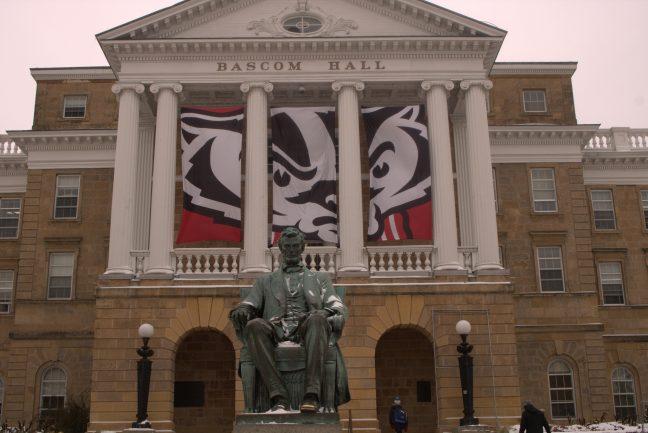The University of Wisconsin opened another investigation into the “toxic” environment of engineering professor Akbar Sayeed’s lab, as reported Wednesday.
After a graduate student in his lab died by suicide in 2016, UW placed Sayeed under disciplinary suspension, but he returned to the university in January, relegated to administrative duties. His return upset many graduate students in the department and across UW, who protested last fall for better incident reporting systems and to keep Sayeed off campus.
The Wisconsin State Journal put in an open records request pertaining to new investigation materials, and reported the university responded Tuesday with confirmation of a second, ongoing investigation.
Director of University Communications Meredith McGlone told the Herald in an email she couldn’t share any information beyond that the UW is conducting an investigation, because the investigation is still ongoing.
The Electrical and Computer Engineering Graduate Student Association, who organized the protest last fall, said in a statement to the Herald they hope the investigation ends in further discipline for Sayeed. Their organization had asked UW to listen to more of Sayeed’s students before allowing his return to campus.
“ECE GSA is glad to see that the University is taking time to hear from all victims of Dr. Sayeed’s abuse like our students requested last semester,” their statement said.
The ECE GSA also said they hope UW takes the time to conduct a full, holistic investigation.
“We hope that the evidence report passed onto the Provost’s office last semester is taken into consideration — namely that the Provost does not prematurely cap the punishment before the investigation begins,” the ECE GSA said.
Section 9.06 of Faculty Policy and Procedures details how investigations of faculty proceed. The policy states the faculty member undergoing investigation can be advised by an outside attorney throughout the process, and they have the opportunity to speak on their own behalf or voice concerns about their investigator to the provost.
At the end of the investigation, if disciplinary action isn’t warranted, the provost may dismiss the complaint or refer it to the faculty member’s department for action there.
If discipline is warranted, the provost may begin disciplinary action. The faculty member has the opportunity to negotiate a settlement — if a settlement is not reached, the provost proceeds with disciplinary action and the faculty member has the right to appeal.


